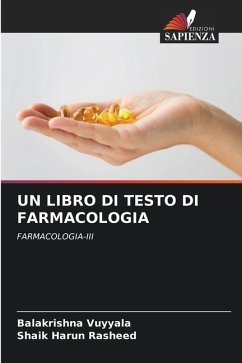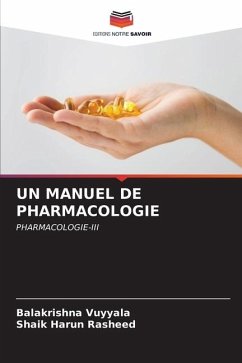
A Text Book of Pharmacology
Pharmacology - III
Versandkostenfrei!
Versandfertig in 6-10 Tagen
53,99 €
inkl. MwSt.

PAYBACK Punkte
27 °P sammeln!
Pharmacology is the study of medications, or chemical compounds, which interact with various living systems, from tiny molecules to cells, to tissues and whole organisms in order to produce a certain effect. Every day, more and more new medications are designed to fight diseases, from infections to cancer, heart failure, and depression. But developing a new drug can take a lot of time and money, and it typically consists of three steps. Step 1 is discovery, and that's when a candidate compound is picked out as a possible therapeutic agent for a specific disease. Step 2 is preclinical research,...
Pharmacology is the study of medications, or chemical compounds, which interact with various living systems, from tiny molecules to cells, to tissues and whole organisms in order to produce a certain effect. Every day, more and more new medications are designed to fight diseases, from infections to cancer, heart failure, and depression. But developing a new drug can take a lot of time and money, and it typically consists of three steps. Step 1 is discovery, and that's when a candidate compound is picked out as a possible therapeutic agent for a specific disease. Step 2 is preclinical research, during which this compound is tested on cell cultures and animals, like mice and rats, mainly to see if it causes any severe harm to living organisms. And, finally, step 3 is clinical development, during which clinical trials are performed. That's where the compound is tested on humans to see if it's safe and effective in treating diseases.












